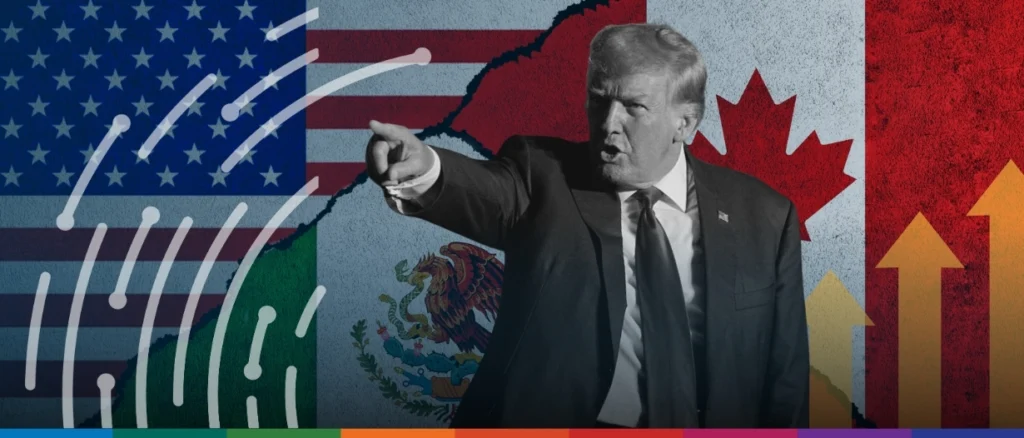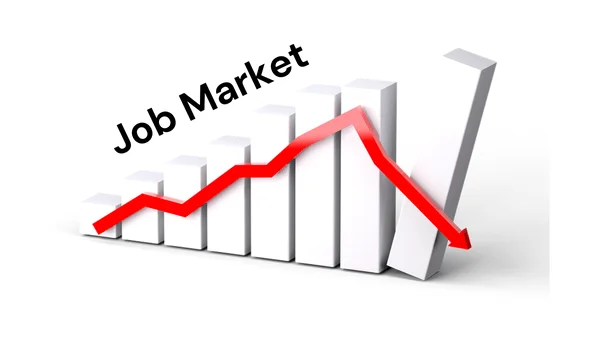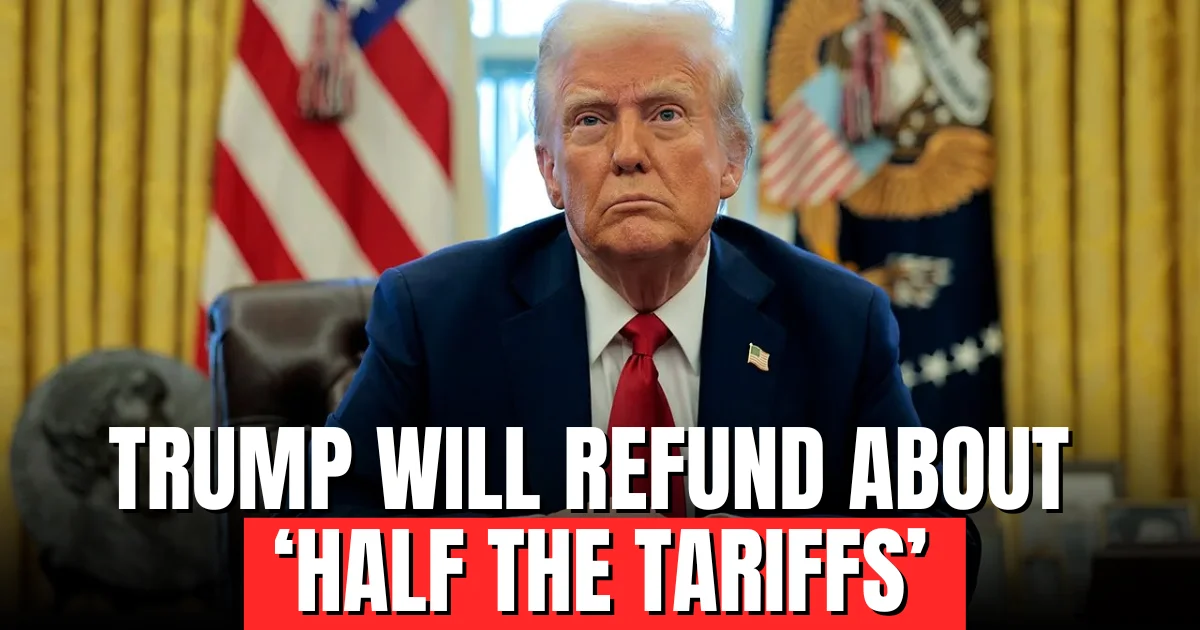Treasury Sec. Scott Bessent says the U.S. may refund half of Trump’s tariffs if the Supreme Court rules he overstepped his authority.
Table of Contents
America May Refund Half of Trump’s Tariffs If Supreme Court Rules Against Him, Says Bessent
Washington, D.C. — In a major development that could impact the U.S. economy, Treasury Secretary Scott Bessent announced on Sunday that the U.S. Treasury Department would have to refund nearly half of the tariffs imposed under former President Donald Trump if the Supreme Court upholds a ruling declaring those tariffs an overstep of presidential authority.
Speaking on NBC News’ “Meet the Press”, Bessent warned,
“We would have to give a refund on about half the tariffs, which would be terrible for the Treasury. If the court says it, we’d have to do it.”
Background: The Dispute Over Trump’s ‘Reciprocal’ Tariffs

In August 2024, a federal appeals court ruled that Trump’s “reciprocal” tariffs — part of his aggressive trade strategy — exceeded presidential powers under the International Emergency Economic Powers Act (IEEPA).
The ruling stated:
“We discern no clear congressional authorization by IEEPA for tariffs of the magnitude of the Reciprocal Tariffs and Trafficking Tariffs.”
Trump’s tariffs, introduced in early August, were aimed at pressuring trading partners like China and Mexico into better deals. However, the appeals court’s decision halted their full implementation, delaying enforcement until October 14, 2025.
Supreme Court to Decide the Future of Tariffs
The Trump administration has appealed the ruling to the U.S. Supreme Court, arguing that removing these tariffs would weaken America’s negotiating position on global trade.
According to Bessent, if the Supreme Court rules against Trump, the Treasury would have to refund billions collected through these duties — a move that could reshape the U.S. economy and impact federal revenue streams.
Economic Stakes: Billions at Risk

The financial consequences are significant:
- The U.S. collected $28 billion in customs duties in July alone.
- In April, customs revenue was $16.8 billion.
- The Department of Homeland Security confirmed that $81.5 billion was collected under Trump’s tariffs since implementation.
If refunds are issued, the Treasury would face a massive cash outflow, potentially affecting other government programs and fiscal planning.
Impact on Jobs and U.S. Economy

While the Trump administration defends tariffs as essential for economic growth, the August jobs report revealed troubling signs:
- Only 22,000 jobs were added in August.
- The unemployment rate increased to 4.3% — the highest in nearly four years.
- Manufacturing and goods-related sectors suffered four consecutive months of job declines.
Economist Joe Brusuelas wrote,
“The tariff policy, and the whipsaw manner in which it’s being applied, have had an undeniable impact on hiring.”
Businesses & Consumers Brace for Price Hikes
Major U.S. companies, including Nike, Hasbro, and Walmart, have warned that tariffs increase production costs, which are ultimately passed on to consumers.
The Trump administration, however, insists that American companies should absorb the costs — an argument heavily criticized by economists and businesses alike.
What’s Next?
- October 14, 2025 → Deadline for implementation delay expires.
- If the Supreme Court rules against Trump, billions in refunds could be issued.
- If the Trump administration wins, tariffs stay, and trade negotiations remain unaffected.
Treasury Secretary Bessent remains optimistic:
“We are confident the Supreme Court will uphold the President’s authority.”
FAQs (SEO-Friendly)
Q1. Why might the U.S. refund Trump’s tariffs?
Because a federal appeals court ruled that Trump’s tariffs overstepped presidential authority, and if the Supreme Court agrees, refunds will be issued.
Q2. How much money could be refunded?
Potentially tens of billions of dollars, as the U.S. collected over $81.5 billion under these tariffs.
Q3. When will the Supreme Court rule on this case?
A decision is expected after October 14, 2025, when the appeals court’s delay on enforcement expires.
Q4. How could this affect the U.S. economy?
Refunding tariffs would reduce federal revenue and weaken Trump’s negotiating power in trade talks, while businesses and consumers may see shifting costs.
Final Thoughts
The upcoming Supreme Court ruling could become one of the biggest economic decisions of 2025. With billions at stake and the U.S. economy already showing signs of strain, the Trump tariff refund battle could reshape America’s trade policy, jobs market, and federal revenues in the months ahead.

